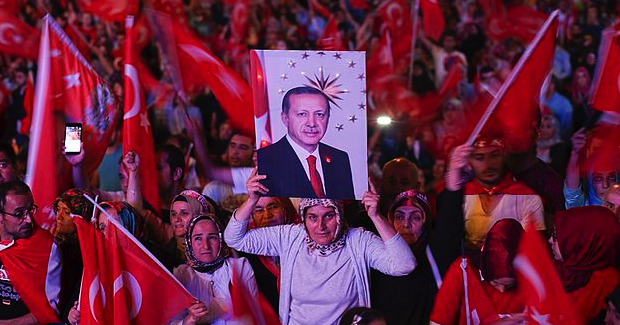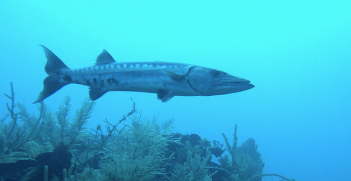The Case against Gülen

The Istanbul nightclub attack on New Years Eve appeared to be the culmination of doom, coming on a day all Turks cherish and one in which they make an effort to be merry. Given all that has occurred, it now seems a long time since the July 2016 coup d’état. But in view of the coup’s importance and the responsibility that Turkish authorities put on Fethullah Gülen, we owe it to ourselves and to the Turks to try and determine if the accusations make sense.
I say, ‘especially the Turks’, as no one else appears to take the accusation seriously, except Donald Trump’s soon-to-be national security advisor, Michael T. Flynn. Flynn has determined that Gülen is the head of a terrorist organisation, likening him to Sayed Qutb, and Hassan Al-Banna, the founder of the Muslim Brotherhood in Egypt.
The Turkish authorities swear that Gülenists were responsible for downing a Russian plane flying in Turkish airspace in 2015, in addition to the December 2016 assassination of the Russian Ambassador in Istanbul. The Russians cannot be blamed for wondering if Erdogan’s ‘straw man’ is not a prank for domestic political consumption. In the case of the assassination of Ambassador Karlov, the Syrian connection would appear, at first glance, much more relevant than Gülen and Hizmet.
Is the 75-year-old predicator of Islam, Fethullah Gülen, the head of a terrorist organisation?
The answer is a definitive ‘no’. The very essence of the Gülen’s Hizmet organisation is based on intellectual supremacy as it relates especially to Islam and education. They are not armed bandits and those that are armed represent the authority of the Turkish state either as police or as soldiers. This ‘infiltration’ of the Turkish state took place under the auspices of President Erdogan and the AK Party.
The Gülenists were a most valuable ally in blunting the erstwhile secularism of opposition Kemalists and nipping in the bud the new Kurdish Party and its demands on the Turkish state. This is not to say that Gülen’s organisation is open to all and transparent. Quite the contrary, it reflects Gülen’s own reliance on private sector partners and secrecy, especially when it comes to financing the movement. It is not an open book and there are plenty of court cases now underway in North America on the subject of influence pandering and insider contracting.
The Turkish government responds that the coup plotters received a phone call from Gülen on the night of the plot asking high-level Turkish officials to allow the coup to continue. Some of the participating soldiers and police were rumoured to be Gülenists. This is quite possible given the previous love-in between the governing AK Party and the Gülen movement. For example, it is common knowledge that much of the military and local police in Eastern Turkey have Gülenists in their ranks.
However, this is pretty flimsy evidence for what Erdogan is alleging. At most, it is circumstantial evidence and dependent on possible forced confessions and other documents produced using dubious methods. There will never be a totally satisfactory response either way.
The accusation that Gülen is the reincarnation of Syed Qutb or Hassan Al-Banna is ludicrous. Qutb was a left-wing Salafist, who was radicalised during a lengthy visit to the United States in the 1960s. He witnessed racial prejudice, crushing poverty and an empire in decline over its war on Vietnam.
In contrast, Gülen’s ideas were formed in Turkey and can hardly be termed anti-authoritarian. In terms of political thought, Gülen is a conservative Islamist very much supportive of the capitalist style of economy and thus tolerant of social and economic imbalances created by market economies, which is part and parcel of his view of Islam. He and his movement have almost always opposed any non-democratic or radical change in Turkey and elsewhere in the world in favour of an incrementalist populist approach.
The choice of Al-Banna as a Gülen mentor is even more puzzling. Al-Banna, the founder of the Muslim Brotherhood in Egypt, was of two minds when confronted with the brutal widespread suppression of the Ikhwan. He resisted efforts to sway the movement towards the creation of a military wing. Moreover, their modern heirs are supported by the Turkish AK Party and are not terrorist organisations. For example, in Egypt, despite the fact that Morsi is rotting in an Egyptian jail, his political formation won the most recent free elections. In Syria, Erdogan’s allies of choice belong to the Syrian Muslim Brotherhood.
Sufism and Salafism are two opposite poles of Islamic political thought. The former has engendered no terror groups and foresees a multifaceted approach vis-à-vis faith in Islam. The latter has engendered significant terrorist organisations like Al-Qaeda and Islamic State and it features an ultra-counterintuitive, rationalist, unidimensional approach to Islamic revelation.
To accuse Gülen of heading a terrorist organisation, one would have to ignore the history of Islamic thought, the distinction between Salafism and Sufism, extinguish national particularity in favour of one unique vision of Islam and believe that Gülen has spent his life lying about multi-confessionalism and the respect for democracy and rule of law.
As a political philosopher steeped in the Western continental philosophical tradition, I do not agree with Gülen’s religious views nor do I like the Hizmet organization, especially when I see it avidly seeking out possibilities of influence pandering. Their educational elitism is irritating and borders on pure arrogance. Nevertheless, some of the best schools in the world are creations of the Hizmet organisation. How they are financed and whether they encourage discovery and openness in society remain question marks for me.
However, it must be said that in a country where political change has often been brutal and violent, Gülen remains staunch in his support of popular consensus and rule of law. Orchestrating coups in his home country is not part of Gülen’s own thought and violates the basics of Sufi Islam, in which he believes.
Between Bashar al-Assad and his Iranian and Russian-backed thugs, the Kurdish PKK and the PYD, Islamic State militants and other opponents of Turkish nation building, Gülen is pretty meagre fare upon which to base a credible political narrative.
For most Turks, to be confronted with such daunting and dangerous opponents at this point in their democracy constitutes a cautionary statement about the present quality of Turkish political leadership.
Dr Bruce Mabley is the director of the Mackenzie-Papineau Group think tank based in Montreal devoted to analysis of international politics. He is also a former Canadian diplomat and academic who has written a number of analytical and academic texts.
This article is published under a Creative Commons Licence and may be republished with attribution.





